The impact of Covid-19 on human resource management: avoiding generalizations
While there is now a great deal of discussion concerning the impact of Covid-19 on and implications for working practices and human resource management (HRM), much of the content and comment on these topics tend to be of a general nature, offering observations and/or guidance that seek to define what a ‘new normal’ might be. For example, that remote working will become the norm, or that working practices will become more flexible. While this may be indeed what happens, because Covid-19 is a global pandemic, we need to understand its impact on working practices, well-being and HRM in specific contexts. It is likely many changes will be common across country contexts, but we should also expect, given institutional differences, that there will be localized nuances. In Australia, through a survey of and interviews with managers and others with people management responsibility, our ongoing research has highlighted some important outcomes.
First, while the majority of industries have been negatively affected by Covid-19, particular industries and sectors have been affected positively. For example, in Australia, amidst some reports of negative impact, many respondents from healthcare and social assistance, public administration, finance and insurance, and mining have reported a positive impact. As would be expected, the majority of our respondents so far have moved to remote working, but most have not made positions redundant and have worked to retain staff without using government subsidies. In some sectors, some additional hiring has been undertaken while in most, hiring freezes have been put in place.
Second, while many commentators are predicting an increase in remote working in the future, this is not at all clear from our responses up to now. As we would expect, organizations are reviewing the effectiveness of remote working almost on a daily basis, but many are yet to make any commitment to long-term remote working. It appears that organizations do not yet know how remote working is affecting performance and productivity, which is hardly surprising given that most are using it for the first time. There is also the requirement of putting in place new systems, policies and procedures for remote working which in the Australian context is not something that can be introduced without due diligence. Organisations are certainly debating the issue with as yet no clear-cut decisions as to whether remote working will continue beyond the pandemic.
Third, respondents are highlighting some key issues across a range of people management topics as they work to deal with changing working practices. Overall, the general sense is that people management is having to become more agile and more responsive as a consequence of the changed situation. In particular, respondents have mentioned the need to differentiate between compliance that is required in the Australian context (for example, the importance of compliance to changing legal circumstances) and compliance with internal policies and procedures that can be side-stepped to provide greater agility and flexibility. This balancing act will not be relevant to all national contexts where the law relating to employment matters can be ignored or side-stepped.
More specifically, respondents have indicated that because many of the central issues involved in business continuity are around working practices and people management, they themselves are feeling much more valued. Issues being highlighted by our respondents include the more prosaic issues of ensuring that staff have functioning technology at home as well as ensuring effective communication, supervision, productivity and performance management, employee engagement and support, re-aligning employee benefits and re-designing policies in relation to remote working. The role of HR professionals and their expertise has increased in significance in many organisations as they seek to make agile and effective adaptations in the Australian context.
Fourth, it is also apparent from our study that employee well-being and safety is of crucial importance. The move to remote working does not suit everyone and even in Australia, where a full lockdown has never been implemented, psychological well-being and safety is an issue. The elements involved in this are obviously many. Not only will individuals respond to the demands of remote working differently, but the home context will also be specifically important in influencing well-being and safety, for example, in relation to spatial arrangements and family demands. These aspects of employee welfare create the need for different and new areas of HR expertise to be applied in organisations.
Fifth, respondents have highlighted some employee behaviors and actions that they recognize as having been helpful in business continuity. For example, employee willingness to collaborate with each other and with human resource professionals and departments in making changes, and employee willingness to be flexible and adaptable; complying with necessary changes to safety measures and; a willingness to learn and upskill quickly. Such positive behaviors have enabled some organizations to manage rapid change effectively. In terms of unhelpful behaviors, respondents have highlighted that managers have had problems with accepting remote working because of their perception that it negatively affects performance, which leads to micro-management. HR professionals need to be experts at advising managers on how to effectively manage the performance of a remote workforce, while the issue of micro-management is often a cover for the lack of trust managers have towards their staff once they are ‘invisible’.
The issue of trust is clearly important, in that managers who lack trust in their staff in the office will not suddenly develop it when their staff are working remotely. Given that trust (and fairness) are central tenets of effective management and employee performance, it is unsurprising that managers who micro-manage will see a fall in productivity. In the longer term these are issues that need to be addressed by organizations in a broader context.
From the responses to our study so far, and we continue to gather data, HR professionals and others with people management responsibilities in Australia are having to bob and weave almost on a daily basis. As part of the requirement for them to be more agile, they are having to learn new skills, develop new expertise and disrupt some old practices. They are having to learn very quickly how to support remote working. In particular, this is with respect to issues of performance, changing benefit scenarios, and psychological well-being. In addition, they are dealing with managerial trust issues concerning remote staff and micro-management.
Our respondents are indicating that they have to be much more ‘tech savvy’ in offering support and in other aspects of their support role as HR professionals. They have also to develop new policies, but more importantly, practices, with respect to performance management. Respondents also highlighted that having business and people management continuity plans in place has now taken on much greater urgency for the future.
As our international study develops and we gather data from seven countries, as well as continuing to gather data from Australia, we will begin to get an increasingly detailed and inevitably complex picture of the impact of and implications for working practices and HRM systems of the Covid-19 pandemic. We might assume that some of these issues will be common in many countries.
Author: Eileen Aitken-Fox




